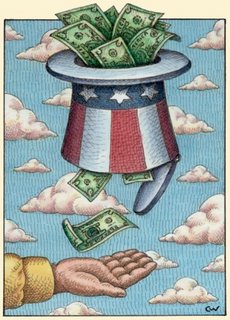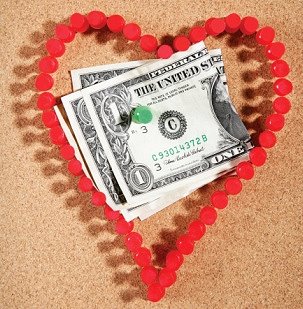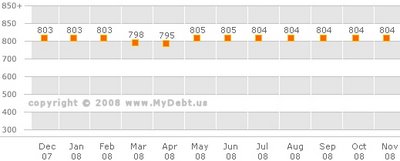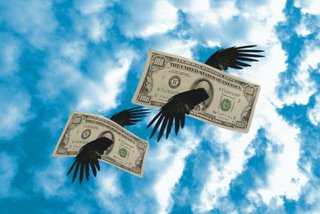This Is A “Fill In The Blanks” Financial Crisis. Now It’s Time To Fill In Your Blanks.
 In the following article, we invite you to just fill in the blanks where you see parentheses. Fill in each blank with any old Bank and see what you get:
In the following article, we invite you to just fill in the blanks where you see parentheses. Fill in each blank with any old Bank and see what you get:Banks Have Their Backs Covered. Who’s Got Yours?
On [just pick a date], the Federal Reserve, the US Treasury, the US President, and Congress agreed to give [Big Name Bank] 300 [Billions or Trillions, take your pick] Dollars in tax payer money, so [Big Name Bank] could buy [Bank About to Fail] for 1 Billion. For those who didn’t know, [Bank About to Fail], one of Wall Streets largest and best known investment bank was bankrupt. [Bank About to Fail] owed more debt than it had in value. Sounds familiar. Kinda' sounds like many people in Foreclosure. Actually, it also sounds like many homeowners not in foreclosure, who have a mortgage loan greater than the value of their home. Just like many ordinary people who have more debt than cash. But I digress. [Bank About to Fail] was in financial trouble because they were worth nothing on paper. So we heard in the news “[Bank About to Fail] must be saved.” Why? “Because if [Bank About to Fail] went under than the whole financial system could have fallen apart. “COULD HAVE”. The stock market “would have” plunged. Big investors “would have” lost lot’s of money. There “would have” been a world crises.
Now let’s think about their bailout logic, one more time. This is my take:
First: [Bank About to Fail] was about to file for bankruptcy because…THEY WERE REALLY BANKRUPT!!.
Second: The Federal Reserve, the US Treasury, the US President, and Congress determined that if [Bank About to Fail] does fail we will have a World Wide Financial Crises.
Third: The Federal Reserve, the US Treasury, the US President, and Congress “saves the day” by essentially GIVING [Big Name Bank] [Billions or Trillions, take your pick] of DOLLARS OF TAXPAYER MONEY so [Big Name Bank] could buy [Bank about to Fail] for 1 BILLION.
Fourth: The Federal Reserve, the US Treasury, the US President, Congress, [Big Name Bank], [Bank About to Fail] and All the Kings Men shake hands, hug, pat each other on the back, exclaim “JOB WELL DONE” b/c the WORLD DID NOT DESCEND INTO FINANCIAL CHAOS.
Do you see what just happened? What does it mean?
No# 1 : There are certain people and businesses TOO IMPORTANT to let go Bankrupt even WHEN BANKRUPT.
No# 2 : The Federal Reserve, the US Treasury, the US President, and Congress DO NOT NEED YOUR PERMISSION to give taxpayer money away to a BANKRUPT BUSINESS.
No# 3 : The Threat of a World Wide Financial Crises is a REALLY GOOD EXCUSE.
No# 4 : It doesn’t take a genius to figure out WHO GOT ALL THE MONEY.
No# 5 : The employees of [Bank about to Fail], who saw the value of their IRA’s or pensions drop because their [Bank about to Fail’s] stock tanked, WATCHED their MONEY they PAY IN TAXES given to…Well let’s say it WAS not given to them to SAVE THEIR IRA’s or PENSIONS.
Truth be told, it is entirely possible that had [Bank about to Fail] actually failed, there would have been a financial crises. It is equally true that if [Bank about to Fail] actually failed, there would NOT have been a financial crises. As is everything in life that could have been, WE WILL NEVER KNOW.
So the rules are made and when things get BAD there is only one Sheriff in town and that Sheriff has friends to protect.
This is history repeating itself over and over. DO FOR YOUR FRIENDS AS YOU WOULD DO FOR YOURSELF. There are those who claim that the bail out of [Bank about to Fail] created a “moral hazard” because [EVERY SINGLE BANK] will take even more risks and ask for even more bailouts because the Federal Reserve, the US Treasury, the US President, and Congress will cover their behind.
And cover their behind they have. For the first time in history, the Federal Reserve allowed Wall Street Investment banks to borrow money from the Fed at a discount (window). For the first time in history, investment banks can become commercial banks. For the first time in history, the Federal Reserve, the US Treasury, the US President, and Congress can hand out TRILLIONS OF DOLLARS of YOUR MONEY without telling YOU where it is going.
It doesn’t end there, the Federal Reserve, the US Treasury, the US President, and Congress gave [Big Name Banks] Treasury Bills (your money) in exchange for [Big Name Banks] worthless collateralized paper. YOUR MONEY FOR BAD PAPER. The paper that consists of collateral debt obligations, sub-prime mortgage backed securities, alt-a mortgage backed securities, credit card backed securities, auto loan backed securities…and the BAD PAPER list goes on and on and on…..
It all boils down to one thing. When it all hits the fan, the BIG NAME BANKS’ Peoples get together, handle their business and do what is necessary to keep their stuff together.
The question for you is “Will Your Peoples Come together, When it starts to get BAD”. It’s time to fill in your blanks.
Labels: ademola, aig, bailout, bankruptcy, banks, bear_stearns, citigroup, congress, fannie_mae, fed, federal_reserve, freddie_mac, treasury_department
|
--> CLICK HERE TO VOTE IN THE DEBT POLL <--
|





